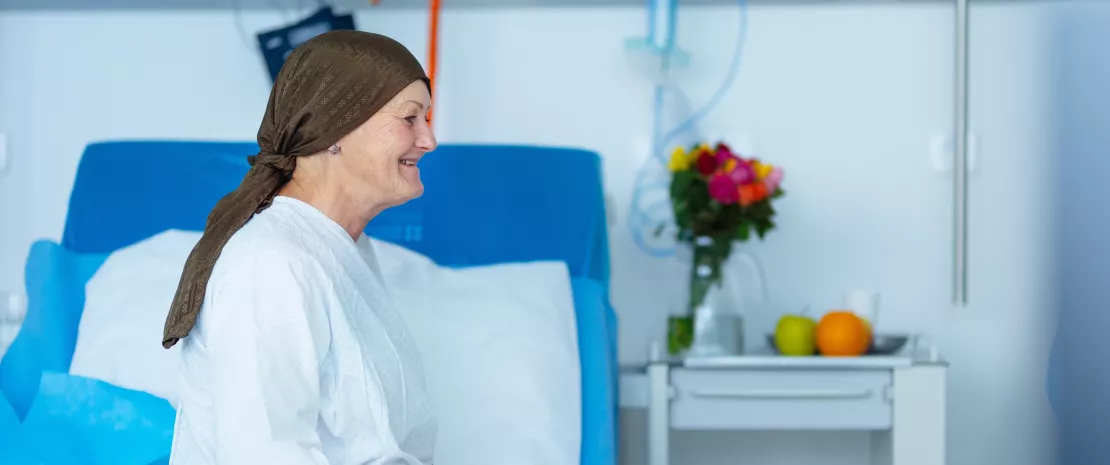Immunotherapy even more effective thanks to gut microbiota of seniors
Immunotherapy has been recognized as an effective therapeutic strategy in the fight against cancer since the 2010s. However, this treatment at times shows its limits in certain patients. Recent research suggests that modulating the gut microbiota may boost our immune system in the fight against cancer cell proliferation.
- Learn all about microbiota
- Microbiota and related conditions
- Act on your microbiota
- Publications
- About the Institute
Healthcare professionals section
Find here your dedicated section
Sources
This article is based on scientific information

About this article
Stimulating and remobilizing the immune system to recognize and eliminate cancer cells: this is the principle behind immunotherapy, which has been revolutionizing cancer treatment since the 2010s. There is, however, one limitation: in some patients, it is not very effective.
1/6 Cancer is one of the world’s leading causes of death, accounting for nearly 10 million deaths in 2020, i.e. almost one in six.
Studies suggest that the gut microbiota may influence the outcome of this treatment, with certain bacteria living in our digestive tract secreting molecules capable of boosting our immune system in its fight against the proliferation of cancer cells. Some researchers have attempted to modify their patients’ gut flora prior to immunotherapy so as to stimulate the treatment. One way of doing this is via fecal microbiota transplantation.
1/3 Only 1 in 3 say they have already had an explanation of what microbiota is by their physicians (34% vs. 55% for 25-34 years-old.
1/3 Only 1 in 3 people have ever had their doctor explain to them how to keep their microbiota in balance (37% vs. 60% for 25-34 years-old).
Microbiota of seniors is preferable
If you were to receive a fecal microbiota transplantation (now a recognized therapeutic solution, or under study as such, for many diseases), you would tend to choose a young, healthy donor. So would researchers. However, they may have to revise this position and instead opt for stools from healthy eighty-year-old donors.
Key figures
The most common cancers (in terms of number of cases) are: 2
- breast cancer (2.26 million cases);
- lung cancer (2.21 million cases);
- colorectal cancer (1.93 million cases);
- prostate cancer (1.41 million cases);
- skin cancer (non-melanoma) (1.20 million cases);
- stomach cancer (1.09 million cases)
The most lethal cancers are:
- lung cancer (1.80 million deaths);
- colorectal cancer (916,000 deaths);
- liver cancer (830,000 deaths);
- stomach cancer (769,000 deaths);
- breast cancer (685,000 deaths).
A recent study 1 has shown that people over sixty respond better to immunotherapy, and that the older they are, the more their survival defies prognosis. But why?
Since with age, their gut microbiota seems to evolve towards a set of bacteria more favorable to the outcome of immunotherapy. In fact, by transplanting these bacteria typical of senior citizens into cancer-stricken mice prior to immunotherapy, tumor growth was reduced to a greater extent than without fecal transplantation.
What explains these results? At first glance, because these “elderly” bacteria give a “youthful” boost to an immune system that tends to become depleted with age. In this respect, it seems that the value of healthy microbiota increases with age.













